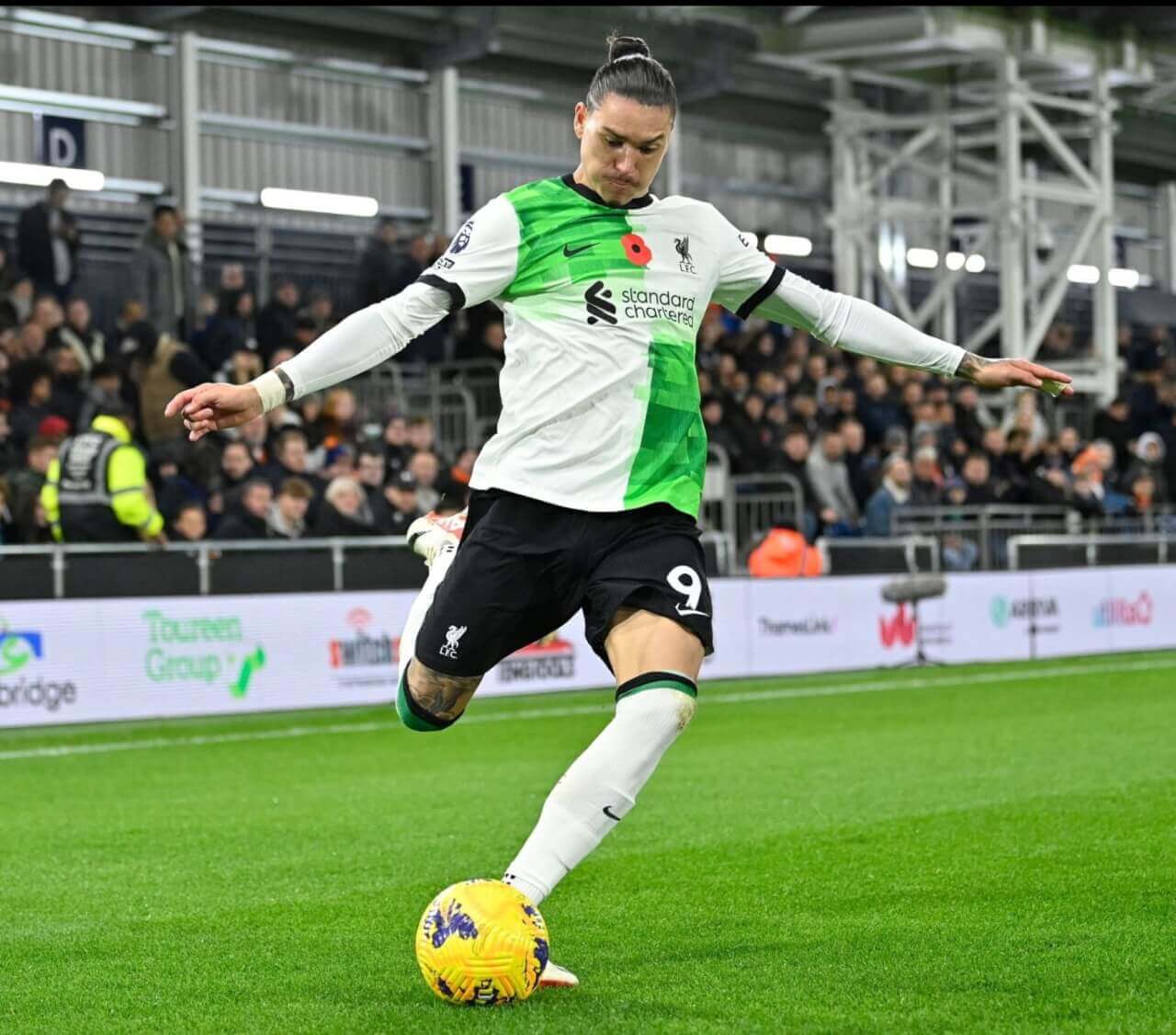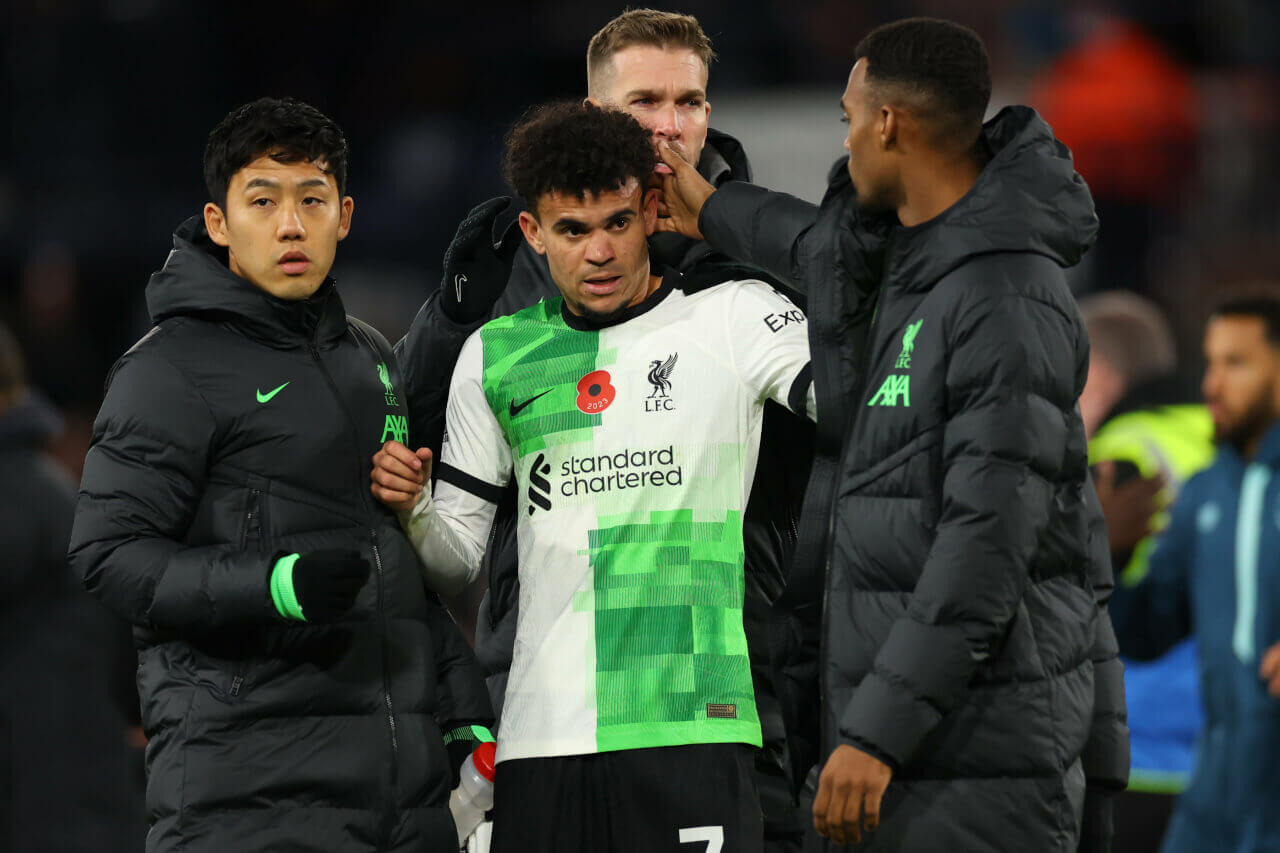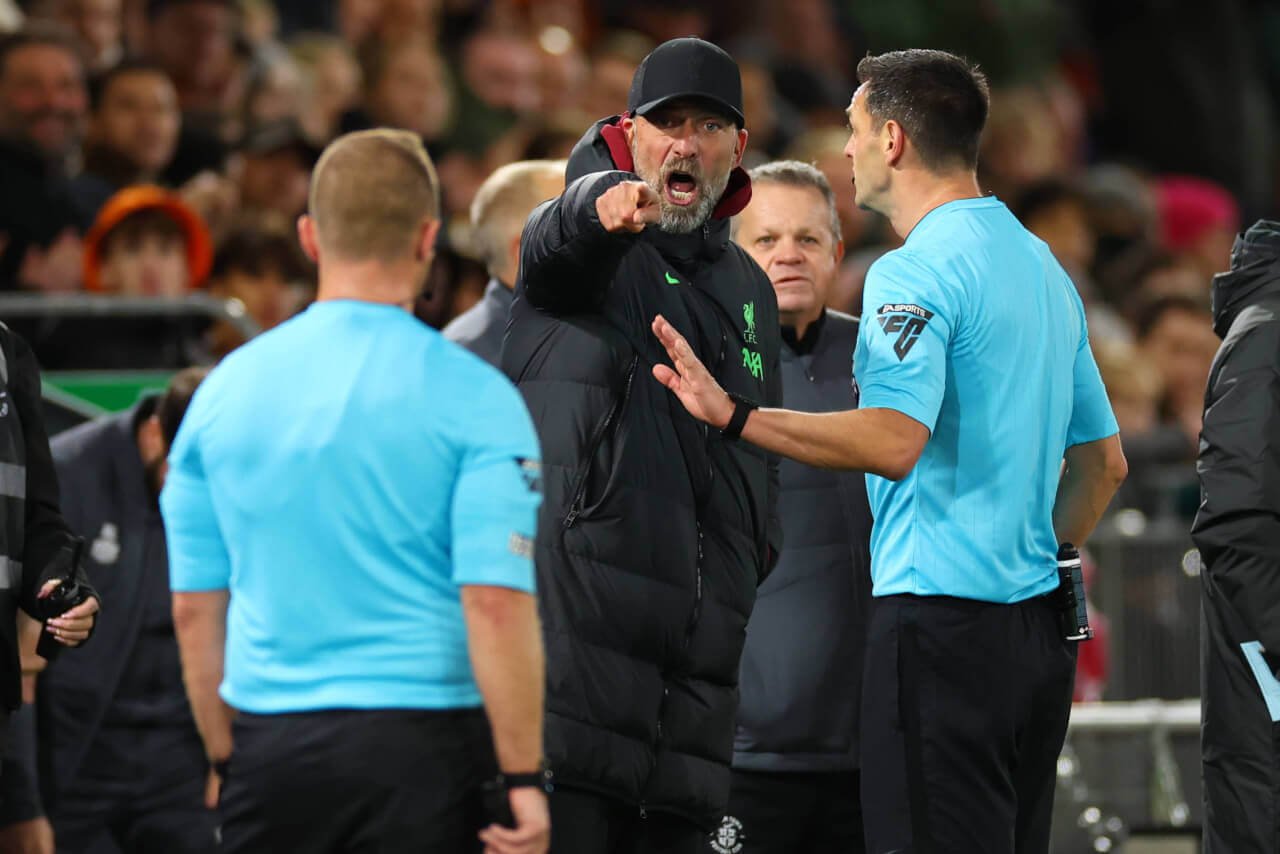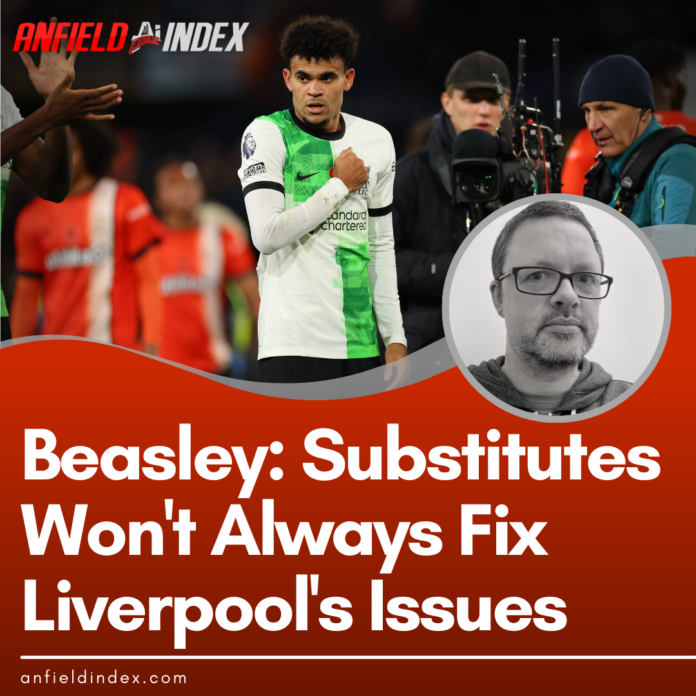Late Drama in Liverpool’s League Clash
Liverpool’s last league game ended in Late Drama, with both sides scoring in the Final Minutes (plus stoppage time) of the match. Yet it needn’t have turned out that way with some Sharp Finishing.
Reds’ Sharp Finishing Secures Point
In the Reds’ 1-1 draw at Luton on Sunday, four of their eight highest value chances (per FBRef’s expected goal stats) occurred in the first 33 minutes, with the top three between minutes 68 and 70. The top two alone were of greater combined xG than the Hatters mustered in total, showing that although Liverpool did not play particularly well, they certainly had the chances to have won with ease.
Their goal finally came in the 95th minute, thanks to substitutes Harvey Elliott and Luis Díaz combining. Opta’s Michael Reid noted that this was the 11th time a Jürgen Klopp Sub had scored an equaliser or go-ahead goal in the 90th minute or later in the Premier League, the most of any manager in competition history.
Liverpool’s Late Goal Flurry Continues
The other example from this season was more special, with Darwin Núñez scoring a winner for the 10-man Reds in the 93rd minute at St James’ Park. The other late goals which secured a result occurred at Molineux, with Andy Robertson (in the 85th minute) and a Hugo Bueno own goal (91st) turning one point into three.

With other late goals against Newcastle, West Ham, Everton, and Nottingham Forest, Liverpool have scored eight from the 76th minute onwards, the joint-most in the Premier League (alongside Arsenal). Maintaining the goals-per-game rate and the Reds would amass 27 goals in the final 15 minutes of matches, more than any side in the division recorded in the previous 15 seasons.
(And as an aside, the two teams with 26 in that period were the Chelsea team of 2009/10 and Rafa Benitez’ Reds from 12 months earlier; a team which won the league and another which came closer than any from the club had for almost two decades).
Anfield’s Kings of the Last-Minute Goals
Of course, it seems likely that late goals will be on the rise with Premier League referees adding on more time than we are used to at the end of matches. Liverpool’s league games have seen an average of 3:44 announced stoppage time in the first half, 5:49 in the second. You can look at breakdowns of goals by 15-minute chunks of matches but of course they are not all of equal length.
Leaving that issue aside, the thing that should mildly concern Klopp is the sustainability—or lack thereof—of his side’s record for late goals. There are two facts which raise concerns.
Let’s go back to our late goal data, where we find that a third of Liverpool’s 24 league goals this season have come from the 76th minute onwards. The aforementioned Reds’ team of 2008/09 is the last big six side to leave such a high proportion of its goal scoring until the final quarter hour.

Only 11 teams over the past 14 seasons have been at this level or higher, and while Leicester finished fifth in 2020/21, nobody else did better than seventh and the average final standing was 10.5th. None of these sides scored more than 68 in total either, and Klopp will want a lot more than that from his charges this term.
The other mild worry relates to the underlying numbers. Liverpool’s eight late goals this season have come from chances collectively valued at 4.98 xG by Understat. This overachievement of 3.02 is the biggest the Reds have posted in the 10 campaigns for which they have data, with the 2.18 in the title-winning season of 2019/20 the previous pinnacle.
The widest positive margin in any sixth of matches occurred the same year, with Liverpool scoring 20 times from 14.1 expected goals between the 31st minute and half time in games. Yet that is less than double the current margin for the final quarter hour of matches, and that was across 38 games rather than 11.
Challenges Ahead for Klopp’s Liverpool
Klopp might face challenges at the back of the team too. His side have conceded just three second half goals in the league this season (plus one in the Carabao Cup, at Bournemouth) which is frankly ridiculous. Each one has come at a cost though, with a winner for Tottenham, an equaliser for Brighton, and an opener for Luton making up the set.
All three came in the 78th minute-or-later too. In the last 15 minutes plus stoppage time, the Reds have allowed 5.50 expected goals, an average of 0.50 per game. The worst they had previously posted for any of the 54 quarter-hour segments in the last nine seasons was 0.34 for the opening 15 minutes of matches last season. Remember how they used to concede early goals all the time? The new-look Liverpool might face a similar problem at the end of matches before too long.

Or maybe there’s nothing to worry about. Two of Liverpool’s final 15-minute periods have been spent a man down, one with nine players battling hard at Tottenham, and six of the 10 highest value chances allowed occurred in those three games.
Statistics can’t regress to the mean for quarter-hour chunks of games either. But it’s fair to suggest the Reds need to start scoring earlier as the late strikes stand a very good chance of drying up, while there may be an increase at the other end. There won’t always be a pair of subs who can clear up the mess like they did at Kenilworth Road.



